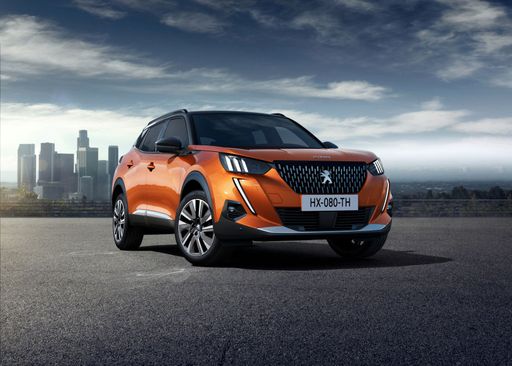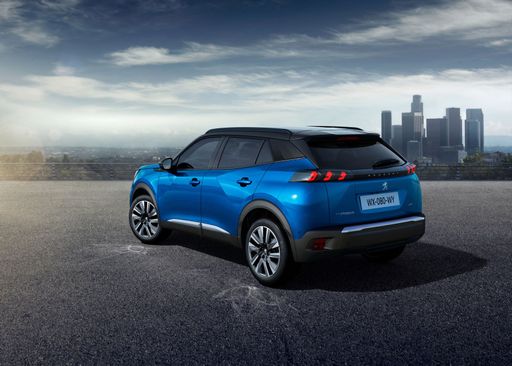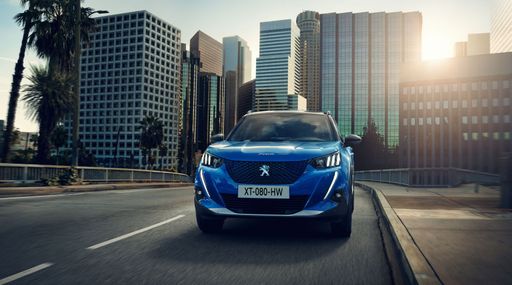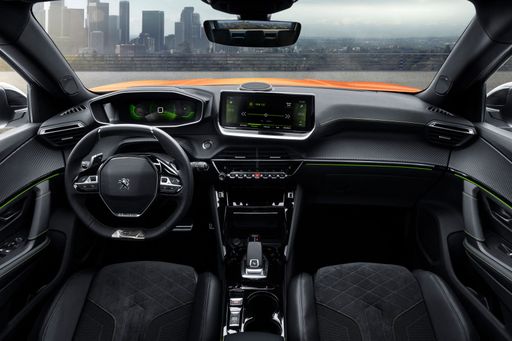Nissan Leaf vs Peugeot 2008 - Differences and prices compared
Compare performance (217 HP vs 156 HP), boot space and price (30800 £ vs 24500 £) at a glance. Find out which car is the better choice for you – Nissan Leaf or Peugeot 2008?
Costs and Efficiency:
Price and efficiency are often the first things buyers look at. Here it becomes clear which model has the long-term edge – whether at the pump, the plug, or in purchase price.
Peugeot 2008 has a distinct advantage in terms of price – it starts at 24500 £, while the Nissan Leaf costs 30800 £. That’s a price difference of around 6309 £.
In terms of energy consumption, the advantage goes to the Peugeot 2008: with 15.50 kWh per 100 km, it’s minimal more efficient than the Nissan Leaf with 16.70 kWh. That’s a difference of about 1.20 kWh.
As for range, the Peugeot 2008 performs slight better – achieving up to 406 km, about 21 km more than the Nissan Leaf.
Engine and Performance:
Power, torque and acceleration say a lot about how a car feels on the road. This is where you see which model delivers more driving dynamics.
When it comes to engine power, the Nissan Leaf has a evident edge – offering 217 HP compared to 156 HP. That’s roughly 61 HP more horsepower.
In acceleration from 0 to 100 km/h, the Nissan Leaf is clearly perceptible quicker – completing the sprint in 6.90 s, while the Peugeot 2008 takes 8.30 s. That’s about 1.40 s faster.
In terms of top speed, the Peugeot 2008 performs evident better – reaching 206 km/h, while the Nissan Leaf tops out at 157 km/h. The difference is around 49 km/h.
There’s also a difference in torque: Nissan Leaf pulls distinct stronger with 340 Nm compared to 270 Nm. That’s about 70 Nm difference.
Space and Everyday Use:
Cabin size, boot volume and payload all play a role in everyday practicality. Here, comfort and flexibility make the difference.
Both vehicles offer seating for 5 people.
In curb weight, Peugeot 2008 is noticeable lighter – 1263 kg compared to 1580 kg. The difference is around 317 kg.
In terms of boot space, the Peugeot 2008 offers slight more room – 434 L compared to 394 L. That’s a difference of about 40 L.
In maximum load capacity, the Peugeot 2008 performs clearly better – up to 1467 L, which is about 677 L more than the Nissan Leaf.
When it comes to payload, Peugeot 2008 minimal takes the win – 447 kg compared to 415 kg. That’s a difference of about 32 kg.
Who comes out on top?
Overall, the Peugeot 2008 shows itself to be slightly ahead and secures the title of DriveDuel Champion.
It convinces with the more balanced overall package and proves to be the more versatile choice for everyday use.

Peugeot 2008
Costs and Consumption
View detailed analysis
Engine and Performance
View detailed analysis
Dimensions and Body
View detailed analysis
Nissan Leaf
The Nissan Leaf is a practical, easygoing electric hatch that turns daily commutes into a quiet, effortless affair while offering more cabin space than it lets on. It’s a sensible, wallet-friendly step into electrification for buyers who value comfort and simplicity over sporty drama, though those chasing long-distance thrills might look elsewhere.
details



Peugeot 2008
The Peugeot 2008 is a stylish, city-friendly crossover that packs big character into a compact package, turning mundane errands into a mildly entertaining drive. Its clever interior layout, polished looks and confident ride make it a smart choice for buyers who want practical daily sense with a touch of flair.
details




|

|
|
|
|
Costs and Consumption |
|
|---|---|
|
Price
30800 - 37200 £
|
Price
24500 - 40300 £
|
|
Consumption L/100km
-
|
Consumption L/100km
4.9 - 5.7 L
|
|
Consumption kWh/100km
16.7 - 17.8 kWh
|
Consumption kWh/100km
15.50 kWh
|
|
Electric Range
270 - 385 km
|
Electric Range
406 km
|
|
Battery Capacity
39 - 59 kWh
|
Battery Capacity
51 kWh
|
|
co2
0 g/km
|
co2
0 - 129 g/km
|
|
Fuel tank capacity
-
|
Fuel tank capacity
44 L
|
Dimensions and Body |
|
|---|---|
|
Body Type
Hatchback
|
Body Type
SUV
|
|
Seats
5
|
Seats
5
|
|
Doors
5
|
Doors
5
|
|
Curb weight
1580 - 1756 kg
|
Curb weight
1263 - 1623 kg
|
|
Trunk capacity
385 - 394 L
|
Trunk capacity
434 L
|
|
Length
4490 mm
|
Length
4304 mm
|
|
Width
1788 mm
|
Width
1770 mm
|
|
Height
1540 - 1545 mm
|
Height
1523 mm
|
|
Max trunk capacity
790 L
|
Max trunk capacity
1467 L
|
|
Payload
384 - 415 kg
|
Payload
407 - 447 kg
|
Engine and Performance |
|
|---|---|
|
Engine Type
Electric
|
Engine Type
Electric, Petrol MHEV, Petrol
|
|
Transmission
Automatic
|
Transmission
Automatic, Manuel
|
|
Transmission Detail
Reduction Gearbox
|
Transmission Detail
Reduction Gearbox, Dual-Clutch Automatic, Manual Gearbox
|
|
Drive Type
Front-Wheel Drive
|
Drive Type
Front-Wheel Drive
|
|
Power HP
150 - 217 HP
|
Power HP
101 - 156 HP
|
|
Acceleration 0-100km/h
6.9 - 7.9 s
|
Acceleration 0-100km/h
8.3 - 10.9 s
|
|
Max Speed
144 - 157 km/h
|
Max Speed
150 - 206 km/h
|
|
Torque
320 - 340 Nm
|
Torque
205 - 270 Nm
|
|
Number of Cylinders
-
|
Number of Cylinders
3
|
|
Power kW
110 - 160 kW
|
Power kW
74 - 115 kW
|
|
Engine capacity
-
|
Engine capacity
1199 cm3
|
General |
|
|---|---|
|
Model Year
2019
|
Model Year
2023 - 2025
|
|
CO2 Efficiency Class
A
|
CO2 Efficiency Class
A, C, D
|
|
Brand
Nissan
|
Brand
Peugeot
|
What drivetrain options does the Nissan Leaf have?
Available configurations include Front-Wheel Drive.
The prices and data displayed are estimates based on German list prices and may vary by country. This information is not legally binding.
